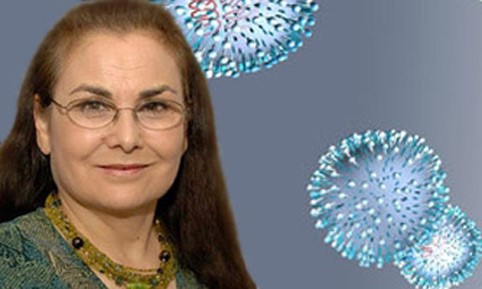A Conversation with Dr. Hayat Onyuksel
1. Could you please give us a brief summary of your background?
I have received my Pharmacy (BSc) degree from Ankara University, Ph.D. degree in Pharmaceutical Sciences from London University, and I did my post-doctoral studies at the University of Michigan, College of Pharmacy. Prior to my current affiliation at the University of Illinois at Chicago, College of pharmacy, I worked as a faculty member at the Ankara University, School of Pharmacy more than 6 years.
2. Could you also summarize your research? Could you please talk about the drug you developed to treat cancer cells?
Being a Pharmaceutical Scientist I deal with drug formulations and delivery. In another words we try to deliver the drug molecules specifically to the diseased tissues without causing much harm to the healthy organs. When a drug is administered to the body, it usually reaches the blood circulation, which delivers it to the disease organ, but in most cases drug is also distributed healthy parts of the body. While drug works on the disease organ it causes toxic and harmful effects on healthy organs. Especially cancer drugs become harmful at concentrations slightly above their therapeutic doses. In my laboratory, using nanotechnology, we deliver the drugs specifically to the diseased sites and do not allow them to reach healthy organs. We do this by encapsulating the drug molecules in our patented nanocarrier and injecting them to the blood of animal models of rat or mice. Drug molecules stay in the carrier during circulation without interaction with the blood cells. Also the carrier is big enough not to cross the blood vessel walls. (In conventional treatment drug being free in the blood can cross this barrier). On the other hand, the drug carrier size is small enough (15nm) to escape out of the circulation at the tumor tissue, where there are big gaps (100nm- 200nm) on the blood vessels. Therefore the drug load is delivered to tumors by nanotechnology. Furthermore, by a specific protein on the surface of the carrier the cancer cells are recognized, and carrier with its load is internalized, and drug is released inside the cell to kill the cancer cell. This technology allows for the use of enough drug dose to kill every single cancer cell without damaging the healthy cells or causing any side effects during chemotherapy. If such a Nanomedicine can be developed to the clinical use, then cure of cancer will be possible. We are currently in the process of licensing our technology to a pharmaceutical company that will do the further developments to make it a commercial product.
3. Where do you see cancer studies in Turkey? What are your suggestions to improve the research in Turkey in this area?
I am not well informed on the cancer studies in Turkey at the Pharmaceutical Industry. My understanding is that most drugs manufactured in Turkey are solid dosage forms. Cancer drugs are generally injectable, which require more strict conditions to manufacture. In academia, on the other hand, basic cancer studies are actually being performed. But to be more productive, we need more molecular biology and animal laboratories, with appropriate committees to approve animal work. Researchers in these labs should also closely collaborate with pharmaceutical technologists and bioengineers.
4. Is it possible to build a bridge in Pharmaceutics and Bioengineering? How? And how can TASSA contribute?
Absolutely, that bridge already exists. I am a professor of both Pharmaceutics and Bioengineering, with the same background. TASSA can contribute by bringing the scientists from different disciplines together. I see that TASSA is already doing it. Nowadays I do believe that the walls between any disciplines are getting thinner and shorter. For any scientific research in any area we need multidisciplinary group of scientists.
5. What is your advice to young scientists from Turkey?
Young scientists from Turkey, are better prepared than our generation. They can easily adapt to advanced labs in US. This is partly due to availability of scientific information through internet and partly the scientific environment in Turkey has significantly improved in recent years. My advice to them will be as follows:
1. Work hard. No matter how smart you are, scientific success cannot be achieved without hard work. You can even enjoy the hard work.
2. Be focused in a specific research area and identify worldwide recognized experts in that area and try to meet them in scientific meetings, if possible get their mentorship. Even though you have a focused research you still need to collaborate with scientist from other disciplines. Collaboration in most cases need some sacrifice and giving away more than you are getting, but it is still worth doing so. One person cannot do it all by himself/ herself. In the long run you will win.
3. Be humble and modest, and respect your peers. Arrogant attitude is not appreciated in scientific community.
